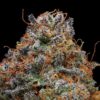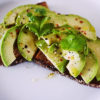Women of Influence: Dr. Annabelle Manalo-Morgan
Scientist Dr. Annabelle Manalo-Morgan miraculously saved her son’s life. Now, she wants to save everybody else.
Macario’s name means “blessing” in Tagalog—the language of his mother’s Filipino heritage. It’s a fitting name for someone whose very existence is a scientific anomaly. Against all odds, Macario is not only living and breathing, but he’s also full of life—always cracking jokes, he’s known as the funniest kid in the class. He’s a presence wherever he goes, including on tour with his father, Grammy-winning reggae artist Gramps Morgan.
For a child whose parents had once accepted a reality where he’d be tube feeding for however long his life would last, at seven years old Macario’s appetite is bigger than ever, surpassing that of any of his four siblings; his favorite food is spaghetti. His mother, Dr. Annabelle Manalo-Morgan, says he’s not just a foodie though—he’s also a big beach boy. “I do think there’s a connection between the brain and the water,” she says. “He’s at peace and happy when he’s at the beach.”
When Dr. Manalo-Morgan gave birth to Macario, her third child, he was born with a stroke and suffered from 200 to 500 seizures a day. After trying everything to treat his condition, after five weeks in the ICU, Macario underwent a nine-hour surgery where 38 percent of his brain was removed. At 28 days old, he was predicted to be paralyzed on the right side of his body. By the time he was six months old, he’d progressed no more than a newborn baby.
His parents found acceptance, believing: If this is what God is giving us, it must be.

Yet Dr. Manalo-Morgan was no stranger to miracles. Her life had shifted course after Hurricane Katrina hit New Orleans, where she was in college, vying for a career in professional basketball. Fate had other plans for her. Graduating with degrees in biology and chemistry, she decided to pursue an MD at Georgetown University—not long before her father, back home in Canada, was diagnosed with Stage 4 cancer. The doctors gave him one month to live, so she returned home to spend time with him. “Long story short, I started to give my dad everything holistic I could think of to fight for my dad’s life,” she says. “A month later, he was 100 percent cancer-free. He overcame what all the doctors—who I respected—said he wouldn’t. It was at that time that I realized medicine is a protocol.”
Doctors aren’t trained to think in terms of personalized treatments, she explains: “They’re not trained to think outside the box.” This treatment for that indication; and the treatments themselves had to be approved by institutions. “After that point, I decided I didn’t want to be a medical doctor,” says Dr. Manalo-Morgan, who’s now a scientist at Vanderbilt University studying “chemographies” at the cellular level and how they affect people with heart disease. “I didn’t want to know just how to treat something, but also why. That was the beginning of my route toward cellular biology and PhD research and understanding that it’s the scientists who create the medicines. It’s the scientists who understand chemical reactions and how different things work in our body, not the medical doctors.”

But as she pursued her research, Dr. Manalo-Morgan still wanted to know, “How does this science I’m doing in a dish truly translate to humans?”
She wanted to feel like she was truly contributing to medicine. And so, her opportunity came in the form of a blessing: Macario. A mother will go to all lengths for her child. Here, she simply refused to accept as fact what the doctors predicted, what was expected. So, simultaneously, Dr. Manalo-Morgan took the risk of experimenting with cannabis to find a solution—never mind that she lived in Nashville, where the plant is still illegal under state law.
A combination of listening to her intuition and word on the street about the benefits of cannabis—especially for those with conditions like epilepsy that cause seizures—led her to formulate a medicine for Macario. Aside from the fact that she couldn’t legally get cannabis medicine in Tennessee anyway, she wanted to make it herself so that she’d know it was pure and contained only exactly what she put in it.
In essence, feeding her son a non-psychoactive cannabinoid formulation through his g-tube was a full-on science experiment…that worked. Within two days, his eyes started moving around. Within two months, he was crawling like a normal baby. And within one year, he was walking. To this day, at age seven, he has no special needs—and he’s still missing almost 40 percent of his brain, including areas that would normally be responsible for many of the things he does today. “So I wrote a book to talk about that,” Dr. Manalo-Morgan says, referring to her recently published memoir, Mighty Flower: How Cannabis Saved My Son (Forbes Books). “It’s about the courage of mom to never give up on your kid, to look outside the box, outside of what’s traditional. I think my son is a miracle and an example of how powerful our brain actually is.”

brain trust “I think my son is a miracle and an example of how powerful our brain actually is,” Dr. Annabelle Manalo-Morgan says, who recently published her best-selling account of her son’s journey, Mighty Flower: How Cannabis Saved My Son (Forbes Books).
Indeed, Macario is missing regions of the brain vital for communication, memory, sight on the right side, and visual spatial organization. “He’s doing everything that he’s not supposed to be able to do,” Dr. Manalo-Morgan says. “It shows the power of the brain to rewire, to compensate for the area that is lost. We only use 10 to 12 percent of our brain anyway, and his brain has been forced to work in much more complex ways—and we’re capable of that.”
Macario’s story, and Dr. Manalo-Morgan’s dedication, force the question: Is the “medicine” that’s being produced today enabling new connections to be made within the brain and body, or do the vast majority of medications simply act as Band-Aids? True medicine, Dr. Manalo-Morgan suggests, heals from the inside out, enabling homeostasis to occur and our own defense mechanisms to kick into gear.
In the last two years, Dr. Manalo-Morgan visited an astonishing 34 countries, speaking with different presidents and ministers of health about cannabis—not in the typical sense of blatantly advocating for the plant itself, but for policy reform that enables more research.

Nowadays, Dr. Annabelle Manalo-Morgan continues to give Macario a CBD tincture when she feels he needs it, just to keep him balanced. “I think of cannabinoids as essential supplements that we all need to have in our daily lives,” she says. Offering a comparison, Dr. Manalo-Morgan explains that just as water satisfies our need for hydration, cannabinoids satisfy our endocannabinoid system’s need for balance. But just as every person needs a different amount of water, depending on their size and constitution, every person also needs a unique medical protocol to custom-fit their nervous system. It does seem logical.
“There are incredible plant compounds out there, not just cannabis, that we can scientifically tailor and use to replace some of our toxic medicines,” Dr. Manalo-Morgan says. “Let us slip cannabis into the conversation; this thing is real; it can help people. Let us study it.”
This story was originally published in issue 48 of the print edition of Cannabis Now. Read it now on the Cannabis Now iTunes app.






















